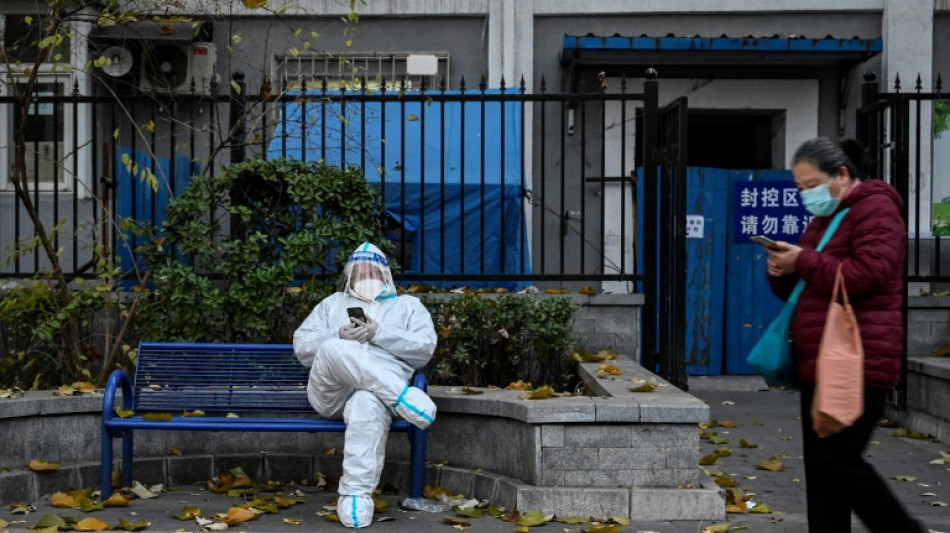
RBGPF
-0.9200


Schools and businesses closed, restaurants empty, and the fear of being locked down at any moment – the Chinese capital is a cauldron of dread and fatigue as Covid curbs tighten nearly three years into the pandemic.
As infections in Beijing surge, residents are increasingly fed up with navigating vague, shifting restrictions and exhausted by the uncertainty of how long they might last.
"I'm sick of everything now, there is no one on the street," Elaine, an office worker in her twenties, said.
"I want to eat out and socialise with friends, but it's impossible," she told AFP.
One French expat living in Beijing was unexpectedly locked down in her boyfriend's apartment Monday morning after staying the night -- one of his neighbours got infected, causing the entire building to be sealed for five days.
"Every time we go to sleep, we're not sure whether the next morning we'll be trapped in our own apartment," the woman, who asked to remain anonymous, said.
"The only thing we have left is the freedom to walk down the street and breathe fresh air."
Testing queues now routinely stretch around blocks, while businesses struggle to manage often unclear red lines.
The fact that information often comes by word of mouth -- oral instructions to close restaurants and businesses that are filtered through the sub-district or neighbourhood committee level -- has only compounded the misery.
- Empty streets -
Beijing's tightening restrictions come as the city is reporting its highest-ever number of daily infections, but at around 1,500 cases, the figures remain low by international standards.
And almost three years into the pandemic, the reaction by health officials appears out of proportion as the rest of the world has learned to live with the virus.
Residents fear a similar shutdown to the one that was imposed on China's biggest city, Shanghai, in the spring, which led to food shortages, protests and scenes of chaos as people fled snap lockdowns.
Beijing's downtown shopping hub of Sanlitun, with its now-closed malls and Western boutiques, and the densely populated central business district of Chaoyang are deserted.
Hairdressers, spas and other services deemed not essential for daily living have also been closed.
One former staffer at a Chaoyang gym left Beijing after her workplace closed down during an outbreak in May, the last time restrictions were this strict.
"The latest Covid wave has had a big impact on people's lives, especially those working in the service sector and fitness enthusiasts," the woman surnamed Xu told AFP.
"Random closures of some PCR testing booths have also affected people who need a 24-hour test result to go to work," she added.
"Many of my former gym colleagues have left Beijing due to lack of salary."
Meanwhile, in Dongcheng district, the capital's historical heart, chock-full of imperial monuments and government ministries, restaurants are barricaded by tables laden with takeout bags.
A staffer at a noodle shop in the district surnamed Wang told AFP that profits had gone down "by 99 percent" since restaurants were ordered to offer only food for takeaway.
"We now only make a few hundred yuan through takeout deliveries per day," he said.
"I hope the city reopens soon, otherwise we won't be able to recoup the losses."
K.Nakajima--JT